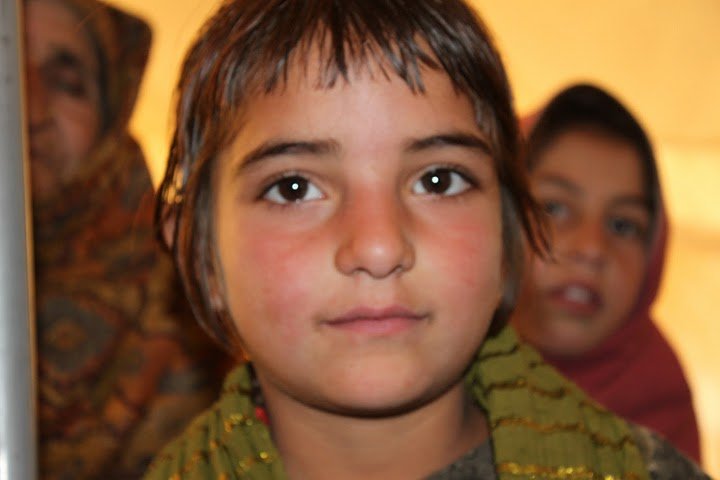By Tabinda Sadiq | Media and Communications Officer - CARE Pakistan
The floods in Pakistan have not only had a huge physical impact on millions, but also inflicted significant emotional trauma on the population.
Syed Naveed Shah, 16, was alone in the house when his parents left to save his uncle, who was trapped in the floods. Naveed’s father told him to take care of his four siblings, three sisters and a brother. “I was worried about my uncle and was waiting for my parents to come back soon," said Naveed. That evening, three feet of water entered the house in minutes. Naveed and his siblings ran towards the nearby hills to save their lives. “We remained on the hills all night. My siblings were so scared and my youngest sister was crying the whole time."
Naveed was scared as well, but remained calm as he was the acting head of his family. They stayed until morning on the hills. And they returned to nothing. "It was a plain ground with no sign of any of our belongings, not even one brick," said Naveed. “I was stunned and wasn’t sure if it was a nightmare or really happening. I never thought something can wash away the house like this."
The family waited for their father to return that evening. Alam Shah, Naveed’s father, came with worse news: He'd been unable to save his younger brother from the floods. “I went to the rooftop and held my brother’s hand. The boundary wall fell and water level increased. My brother was screaming loud to let go of his hand as the roof could fall anytime."
Alam's 25-year-old brother told him not to waste time helping him, as Alam's children needed him more. The moment Alam let go of his brother's hand, flood water took his brother. He was later found dead at the river bank nearby. Says Alam: “He wanted to take me to the parents of his beloved to ask for her hand on Eid, I promised to go with him and saved some money for his marriage as well."
Today, Naveed is scared and Alam is depressed, suffering from Post Traumatic Stress Disorder. “It would have been better if I had died instead of bearing this guilt of letting go of him."
Alam is now living in a rental room with his family. He’s struggling to move on. He can’t send all his children to school due to financial constraints, but insists Naveed - in 10th grade - get an education. “It will help him overcome the horror he’s been through. I want him to become a big man."
Both Naveed and Alam are benefiting from CARE’s psychosocial support. Our clinical psychologist sees them individually for counseling. So far, they have attended three sessions each and say they are feeling better. Psychosocial support is a part of CARE’s activities in the region which is continued since the conflict in Swat. Over 8,000 community members and students will benefit from this support.
Generally, CARE is working in 5 Union Councils in Swat and has started following activities:
Project reports on GlobalGiving are posted directly to globalgiving.org by Project Leaders as they are completed, generally every 3-4 months. To protect the integrity of these documents, GlobalGiving does not alter them; therefore you may find some language or formatting issues.
If you donate to this project or have donated to this project, you can receive an email when this project posts a report. You can also subscribe for reports without donating.
